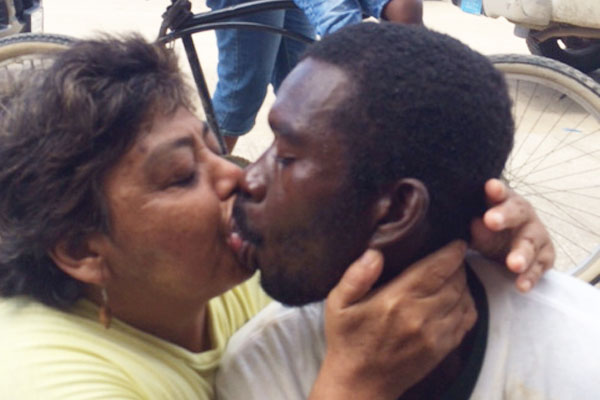As an individual with a physical challenge I have always been sensitive to the problems which persons with either physical or mental incapacity have to endure. The World Health Organization defines mental health as “a state of wellbeing in which the individual realizes his or her own abilities, can cope with the normal stresses of life, can work productively and fruitfully and is able to make a contribution to his or her community”.
During the early 1990s, the commemoration of World Mental Health Day (10th October), which is marked in Belize as part of the larger Mental Health Awareness Week, has stimulated national initiatives at improving mental health education, awareness and advocacy. In recent years national and regional efforts in the field of mental health have emerged that place due priority on improving mental health and achieving equity in mental health for all people worldwide. Our national health and social development policies and strategies increasingly focus on promoting mental wellness, prevention of mental disorders and the removal of stigma associated with mental disease.
There are various types of mental health disorders such as depression and anxiety disorders, and those like schizophrenia and bipolar disorders which are less common. Before our enlightenment, our society treated the disabled with uncharacteristic cruelty. Many being treated for emotional or mental instability were neglected and isolated.
Today, we have come round to a positive view of those in need of therapy, accepting them as otherwise healthy individuals, treating them with respect and providing themselves, their families and communities with the resources to promote their well-being and always upholding the dignity of their humanity.
In a recent encounter in the vicinity of the Farmers’ Market, I observed a young couple both apparently grappling with mental disorders. My observation led me to consider how remarkably similar such individuals are to the rest of society. We share the same dreams and aspirations, have the same needs and even crave and are capable of expressing our love and affection. My observation brought home starkly to me that despite the disorder, there should be no impediment to otherwise enjoying a good quality of life with productive and fulfilling experiences, complete with stable companionships. I learnt their names, Margeli Ramos and Emerson Morgan, and from all appearances, they are truly in love with one another.
Mental disorders are not always permanent; there are some episodes of crisis and hopefully, longer periods of stability. In other words, some who are mentally challenged “go and come,” as we would say in Creole. But through it all they are no different from us; they yearn for companionship, to be in a secure home surrounded by a loving family. Just like us, they wish their children to be well-educated, to go on to tertiary level institutions, religious and social activities, and to participate in and enjoy sporting and cultural events.
Over a period of a few weeks, I observed Margeli and Emerson’s pattern of behaviour toward each other. They always meet at the Farmers Market and can be seen strolling while holding hands on their way to and from their romantic rendezvous. One particular Saturday morning around 11:00, I noticed that the gentleman was still waiting for his partner to arrive. I could see the anxiety and concern in his countenance, and when she finally arrived, he was all ecstatic. You could see the love and excitement within him. There is certainly truth in the saying “absence makes the heart grow fonder,” when you witness how they hugged and kissed each other on the sidewalk.
The accompanying photograph illustrates the depth of timeless love shared by Margeli and Emerson. Indeed, both their families should be delighted to learn that despite their challenges, there are moments in their life experience which provide the emotional fulfilment so necessary for mental wellbeing.
Thinking about Margeli and Emerson, I am reminded of the lyrics of the song by Luther Ingram and others, “if loving you is wrong”…. which says “If loving you is wrong I don’t want to be right; if it means sleeping alone at night, I don’t want to be right; am I wrong to hunger for the gentleness of your touch…am I wrong to hold on to the best thing I ever had; if loving you is wrong I don’t want to be right.”
In my view, the above lyrics and picture demonstrate that the mentally challenged are just like us.

